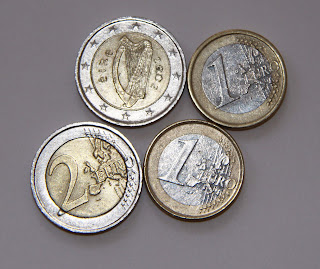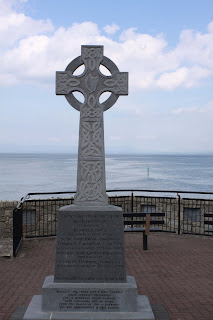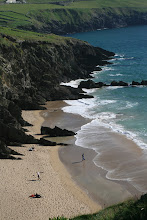
How often does a newspaper op-ed piece elicit reaction that becomes news in itself?
Yesterday, Ireland’s Governor of the Central Bank, Patrick Honohan, responded to an article by Morgan Kelly in The Irish Times (May 7, 2011) in which Kelly said, “Honohan’s miscalculations of the bank losses has turned out to be the costliest mistake ever made by an Irish person.”
Kelly is a professor of economics at University College Dublin and is credited with having predicted the Irish property crash.
“With the Irish Government on track to owe a quarter of a trillion euro by 2014, a prolonged and chaotic national bankruptcy is becoming inevitable,” Kelly said in his Times piece. “Ireland is facing economic ruin.”
“While most people would trace our ruin to to [sic] the bank guarantee of September 2008,” he explains, “the real error was in sticking with the guarantee long after it had become clear that the bank losses were insupportable.”
Finance Minister Brian Lenihan’s mistake in guaranteeing most of the bonds of Irish banks…was “obvious” and ridiculous,” Kelly said. A few months later, Patrick Honohan was appointed Governor of the Central Bank….and had the opportunity to reverse Lenihan. But instead, Honohan deemed the bank losses to be “manageable.” Honohan “appeared to believe that Ireland was still the export-driven powerhouse of the 1990s, rather than the credit-fueled Ponzi scheme it had become since 2000….,” Kelly said.
Honohan went over Lenihan’s head and stated on November 18 on RTE Radio 1 “that Ireland would need a bailout of tens of billions”. “Rarely has a finance minister been so deftly sliced off at the ankles by his central ban k governor,” Kelly said. “And so the Honohan Doctrine that bank losses could and should be repaid by Irish taxpayers ran its predictable course with the financial collapse and international bailout of the Irish State.”
Kelly says that the IMF “presented the Irish with a plan to haircut €30 billion of unguaranteed bonds by two-thirds on average. Lenihan was overjoyed, according to a source who was there, telling the IMF team: ‘You are Ireland’s salvation’.”
Kelly says the “haircut was vetoed by U.S. treasury secretary Timothy Geithner who, as his payment of €13 billion from government owned AIG to Goldman Sachs showed, believes that bankers take priority over taxpayers.”
Kelly concludes, “…the IMF was forced by the obduracy of Geithner and the spinelessness, or worse, of the Irish to lend their imprimatur, €30 billion of their capital, to a deal that its negotiators privately admit will end in Irish bankruptcy.”
Kelly writes, “Back when the euro was being planned in the mid-1990s, it never occurred to anyone that cautious, stodgy banks like AIB and Bank of Ireland, run by faintly dim former rugby players, could ever borrow tens of billions overseas, and lose it all on dodgy property loans.”
Kelly predicts “Ireland’s government debt will top €190 billion by 2014, with another €45 billion in Nama and €35 billion in bank recapitalization, for a total of €270 billion”…this for a country of only about 4 million people, half the population of New York City, and with a reported 100,000 planning to leave the country this year. The bill comes to about €120,000 per Irish worker, Kelly says, or “60 per cent larger than GNP.”
As a result, Kelly reports, “the banks that lent to the Irish Government are at risk of losing most of what they lent. In other words, the Irish banking crisis has become part of the larger European sovereign debt crisis.”
Kelly says that government default of its debt would be for Ireland “that trades on its reputation as a safe place to do business, a bankruptcy would be catastrophic.”
Kelly says that Ireland’s national survival requires that “Ireland walk away from the bailout. This in turn requires the Government to do two things: disengage from the banks, and bring its budget into balance immediately.”
Kelly predicts that the current Fine Gael Government won’t follow his advice and that the result will be bankruptcy. Fine Gael and Labour will fall into disrepute and the next election, “after the trauma and chaos of the bankruptcy” will be nothing like the “dull and predictable” one that took down Fianna Fail.
At such a juncture for Irish society, one would hope there is someone at the helm with training in economics and not just smiling and back-slapping. The ship is getting very close to the edge of the earth.



